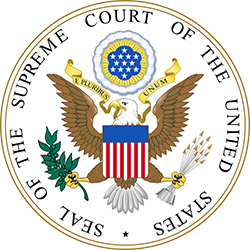 The United States Supreme Court has rejected a case that challenged a public-sector union’s right to be the exclusive bargaining agent for workers.
The United States Supreme Court has rejected a case that challenged a public-sector union’s right to be the exclusive bargaining agent for workers.
The challenge was brought by Jade Thompson, a Marietta Ohio High School Spanish teacher who claimed that she had a First Amendment right not to be represented by a union, Kris LaGrange of UCOMM Communications reports.
Her case sought to build off of three recent decisions by the court to limit public-sector union rights, including Knox v SEIU Local 1000, Harris v Quinn, and Janus v AFSCME Council 1000. Since Thompson is a teacher in a district with a collective bargaining agreement, she is required to comply with the agreement as a condition of her employment, even though she chose not to be a member of the union.
ECHOS OF JANUS
In the Janus decision, which overturned the right of unions to collect fair share fees from non-members to cover mandatory issues like bargaining, Justice Samuel Alito said at the time that exclusive bargaining “substantially restricts the nonmembers’ rights.” However, the Justices seemed unwilling to take up the Thompson case, and denied the petition without even hearing oral arguments.
Thompson was appealing a federal appeals court ruling that refused to overturn a 1984 case, Minnesota State Board v. Knight, which protected the right to exclusive bargaining. By rejecting Thompson’s petition, the Supreme Court affirmed a lower court ruling that exclusive bargaining rights are permissible.
THE USUAL ANTI-UNION SUSPECTS
The usual anti-union suspects lined up in support of Thompson. The National Right to Work Legal Defense Foundation, Americans for Prosperity, and the Freedom Foundation all filed briefs in support of eliminating exclusive bargaining.
The Marietta City School District Board of Education filed a brief in support of keeping exclusive bargaining rights.
Thompson’s case was filed by Andrew Grossman, a lawyer at BakerHostetler in Washington, D.C. who is making a career out of attacking public-sector unions.
According to his bio, Grossman has developed a nationwide litigation strategy to “recognize and enforce public workers’ First Amendment associational rights in the wake of the Supreme Court’s decision in Janus v. AFSCME.” He also worked on the Harris v. Quinn case.


